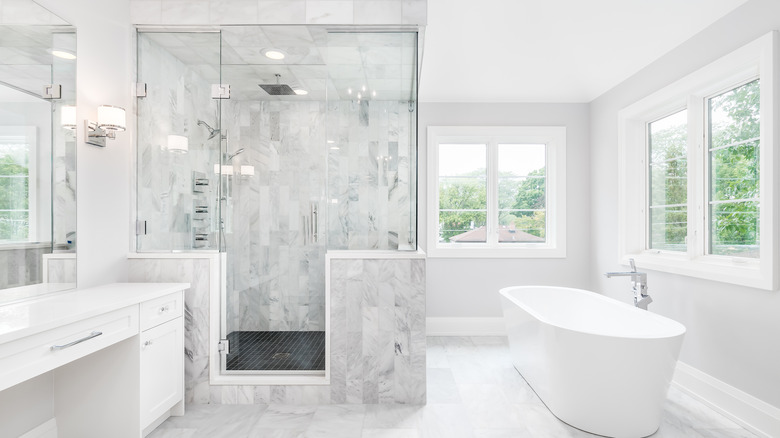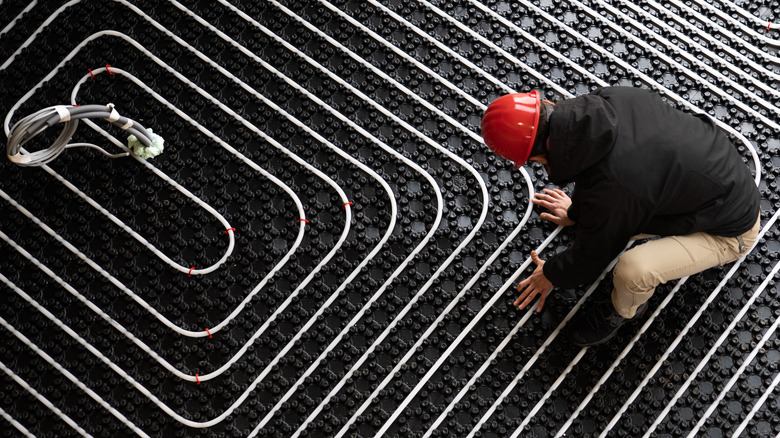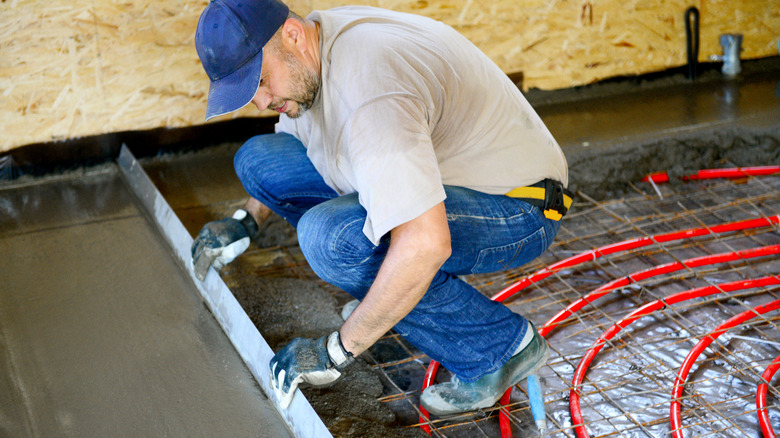Can You Put Heated Floors In Your Shower? What To Know Before Investing
One of the best parts of taking a shower is being enveloped in warmth from all the hot water and steam. Radiant floors in the bathroom add a spa-like effect, allowing you to step out of the shower onto warm tiles that keep you feeling cozy. However, have you ever wondered if it's possible to run your heated floors into your shower? Many homeowners may be wary of this because of the concern that electricity and water might mix, but it is possible and completely safe to have heated shower floors. However, proper waterproofing is absolutely necessary to ensure no water will come into contact with the heating elements, so professional installation is typically the best option.
Heated shower floors can help lead to energy savings since you won't need to set the thermostat so high. You're also able to control the temperature of the floors so they can be comfortable for anyone standing on them. However, repairs can be expensive and installation requires removing your current flooring, which can also be pricey. Additionally, heated floors may not be the right choice for older homes with old electrical systems, unless you opt for a system upgrade. The kind of shower you have will also affect whether you can install this luxury. You will need to consider the system used to heat the shower floors, as each has different costs and installation requirements associated with them.
It depends on your shower and your home
If you're considering a heated floor for the shower, you'll need to discover if it can be added to your current shower type. Walk-in showers and wet rooms are the best options for heated floors, since they have a tile base that the heating elements can be installed underneath. If you have a fiberglass shower or bathtub combination, it's not recommended to use heated floors. This may mean having to complete a renovation to create a walk-in or wet room shower.
Another reason you may require an extensive renovation to add a heated shower floor is if you have an older home. There is a good chance that you'll have to update your electrical system if it's not already updated. Old homes often have 110-volt, 60-amp to serve the entire house, which isn't enough to run modern appliances, let alone heated shower floors. Upgrading to a 200-amp system can cost between $1,300 and $2,000, while 300-amp systems will cost up to $3,500, and 400-amp systems are priced at up to $4,500 or more. These costs are in addition to the price of the heated shower floor materials and installation, so keep in mind that this project may be pricey.
Options for heated shower floors
There are two main options for heated floors: hydronic and electric systems. Hydronic systems can only be installed in new builds and are ideal for larger spaces, so they're typically not the right choice for shower floors. Electric heated floors are a better option since they're easier to install and care for, and there are two main types. The first option is the mat system, which is easy and quick to install since the cables are already pre-spread out. You can cut the mat to fit around any fixtures. The other option is the heating cables system, which is best if you have a uniquely-shaped shower or bathroom because it's more flexible and can fit any shape. In general, mats are more expensive than cables; however, the size of your shower will determine the final price.
Radiant heating floor systems work best with porcelain, ceramic, and natural stone tiles. Porcelain and ceramic conduct heat well because they're thin, which means it won't take long for the floors to heat up. These materials are also durable and keep water out, so you shouldn't have to worry about moisture damaging your heating system. These tiles don't shrink or expand much with heat, so there is little risk of cracking as the floor heats and cools. Natural stone has similar properties for conduction, expanding, and contracting. However, stone tiles are naturally porous, but you can apply a sealer to prevent liquid from getting inside the tile.


